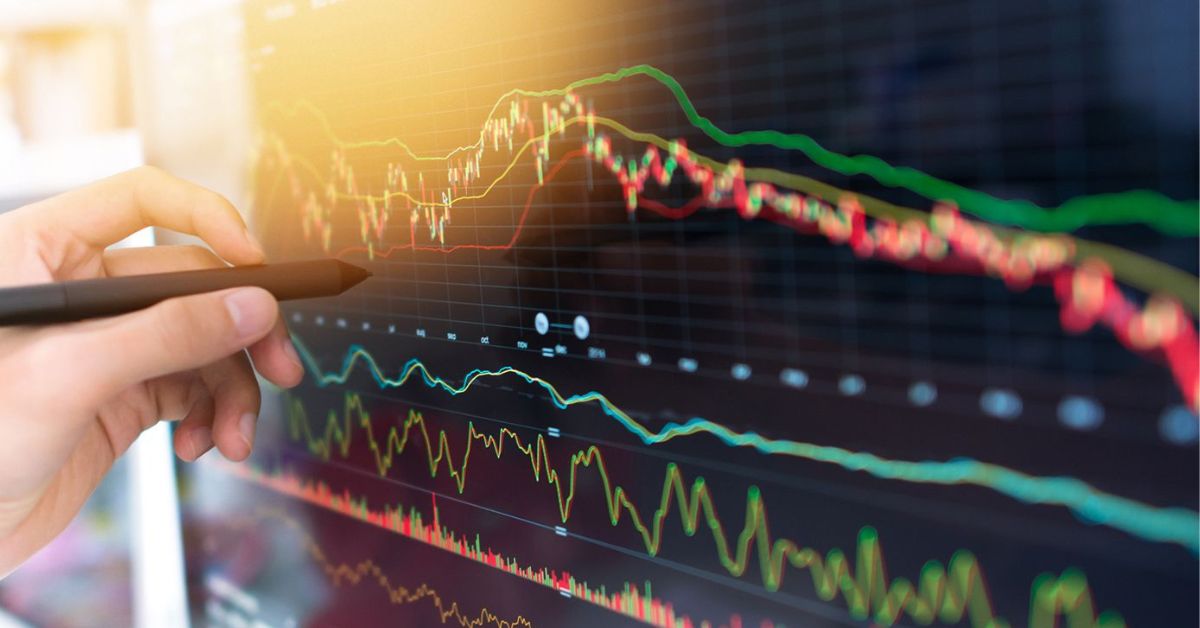In the world of trading, psychology plays a pivotal role in determining success. Knowing how your mind works can help you make better decisions and perform better. In volatile markets, traders must have the right mindset to seize opportunities. This article will explore trading psychology strategy. It will share strategies to help you trade better. Mastering the mental aspects of trading can greatly impact your results. It involves managing emotions and developing self-discipline.
Platforms like Prime XBT provide reliable trading tools and resources. They help improve your trading psychology. These tools can help traders understand their emotions. So, join PrimeXBT today! Use promo code PRIMEOTT to receive a +7% bonus on your deposit.
What is Trading Psychology?

Trading psychology refers to the emotional and mental aspects influencing trading decisions. It encompasses how emotions like fear, greed, and anxiety affect traders’ behavior. Understanding these psychological factors is crucial for successful trading.
A trader’s mindset can determine their ability to execute strategies effectively. Poor psychological health can lead to irrational decisions, resulting in significant losses. Conversely, a strong mindset fosters discipline and confidence.
Ultimately, mastering trading psychology is essential for achieving consistent profitability in the financial markets.
Key Psychological Traits for Successful Traders
Successful traders possess specific psychological traits that significantly impact their performance. These traits help them navigate the emotional challenges of trading while making rational, informed decisions.
Discipline
Discipline is the cornerstone of successful trading. It involves sticking to a predefined trading plan and resisting emotional impulses. Traders with discipline avoid chasing losses and are less likely to engage in impulsive trades.
They adhere to their strategies, ensuring consistent execution regardless of market conditions. Cultivating discipline takes time and practice, but it is vital for long-term success.
Patience
Patience is crucial in trading. Markets fluctuate, and opportunities can take time to materialize. Successful traders understand that not every day will present profitable setups. They wait for the right conditions to enter and exit trades.
This trait helps prevent premature decisions that could lead to losses. By exercising patience, traders can maximize their gains when opportunities arise.
Emotional Resilience

Trading can be emotionally taxing, with inevitable ups and downs. Emotional resilience allows traders to recover from losses and setbacks without losing confidence. It involves managing stress and maintaining a positive outlook during challenging times.
Resilient traders learn from their mistakes, viewing them as opportunities for growth. This adaptability enables them to stay focused on their long-term goals.
Confidence
Confidence in one’s trading abilities is essential for success. Confident traders trust their analysis and decisions, which helps reduce second-guessing and hesitation. This self-assurance stems from experience, knowledge, and a well-developed trading strategy.
However, it’s crucial to differentiate between confidence and overconfidence. While confidence is beneficial, overconfidence can lead to recklessness and increased risk-taking.
Flexibility
The financial markets are constantly evolving, requiring traders to be adaptable. Flexibility allows traders to adjust their strategies based on changing market conditions. This trait involves being open to new ideas and willing to revise plans when necessary.
Successful traders recognize that rigidity can lead to missed opportunities or increased losses. Embracing flexibility enables them to stay relevant and make informed decisions.
Self-Awareness
Self-awareness is the ability to understand one’s emotions, strengths, and weaknesses. Successful traders regularly reflect on their performance and emotional state. This introspection helps them identify patterns that may impact their trading decisions.
By being aware of their psychological triggers, traders can develop strategies to manage them effectively. Self-aware traders are more likely to make rational decisions rather than succumb to emotional impulses.
Risk Management Mindset
A strong risk management mindset is vital for sustaining long-term success. Successful traders prioritize risk management over potential profits. They understand the importance of setting stop-loss orders and position sizes.
This mindset minimizes losses and protects their capital. By focusing on risk management, traders can navigate the inherent volatility of the markets more effectively.
Common Psychological Pitfalls in Trading

Traders often encounter psychological pitfalls that can adversely affect their decision-making processes. Recognizing these common traps is essential for developing strategies to mitigate their impact and enhance overall trading performance.
Fear of Missing Out (FOMO)
FOMO is a prevalent psychological trap that many traders face. It arises when traders feel anxious about missing potential profits from a rising market. This fear can lead to impulsive decisions, causing traders to enter positions without adequate analysis.
Often, FOMO results in chasing trends rather than following a well-structured trading plan, increasing the likelihood of losses.
Loss Aversion
Loss aversion refers to the tendency to prefer avoiding losses over acquiring equivalent gains. Traders often experience more emotional pain from a loss than pleasure from a gain of the same size.
This psychological bias can lead to irrational decision-making, such as holding onto losing positions in the hope of recovery. By focusing on avoiding losses, traders may neglect sound trading principles and miss profitable opportunities.
Overconfidence
Overconfidence occurs when traders overestimate their knowledge and abilities. This trait can lead to taking excessive risks and making poor decisions based on unfounded certainty.
Overconfident traders may ignore risk management strategies, believing they can predict market movements accurately. This mindset can result in significant losses, as it blinds them to potential market risks.
Revenge Trading
Revenge trading is a common response to losses, where traders attempt to recover their losses by taking impulsive trades. This behavior often stems from frustration and emotional turmoil.
Instead of executing a rational strategy, traders may increase their risk to “get back” what they lost. Unfortunately, this can lead to further losses and create a cycle of emotional trading.
Confirmation Bias
Confirmation bias is the tendency to seek information that supports one’s existing beliefs while ignoring contrary evidence. Traders may focus on news or data that reinforces their positions, disregarding information that suggests otherwise.
This bias can hinder objective analysis and lead to poor trading decisions. By failing to consider all relevant information, traders may miss crucial market signals.
Analysis Paralysis
Analysis paralysis occurs when traders become overwhelmed by information and data, leading to indecision. With so many tools and resources available, traders may find themselves stuck in the analysis phase.
This indecisiveness can prevent the timely execution of trades and result in missed opportunities. Striking a balance between analysis and action is essential to avoid this pitfall.
Emotional Decision-Making
Emotional decision-making involves allowing feelings to dictate trading choices. Traders who act based on fear, greed, or anger may struggle to follow their strategies.
Emotional reactions can cloud judgment, leading to impulsive trades that deviate from their plans. Cultivating emotional control is crucial for maintaining consistency and adhering to a trading strategy.
Best Trading Psychology Strategy

Developing a robust trading psychology strategy is essential for achieving long-term success in the markets. These strategies help traders manage their emotions, maintain discipline, and make informed decisions.
Develop a Solid Trading Plan
A well-defined trading plan serves as a roadmap for traders. It outlines entry and exit points, risk management strategies, and specific goals. Having a clear plan helps reduce emotional decision-making and provides a structured approach to trading.
When traders follow their plans, they are less likely to be swayed by fear or greed. Regularly reviewing and adjusting the plan based on market conditions and personal performance can further enhance its effectiveness.
Set Realistic Goals
Establishing realistic trading goals is crucial for maintaining a healthy mindset. Unrealistic expectations can lead to frustration and disappointment, which may negatively impact trading behavior.
Traders should focus on achievable objectives, such as improving their skills or achieving a specific return percentage. By setting manageable goals, traders can cultivate patience and maintain motivation without succumbing to emotional pitfalls.
Practice Mindfulness and Emotional Awareness
Mindfulness involves being present and aware of one’s thoughts and feelings without judgment. Practicing mindfulness can help traders recognize their emotional responses during trading. By developing emotional awareness, traders can identify triggers that lead to impulsive decisions.
Techniques such as meditation or journaling can enhance mindfulness, enabling traders to make more rational choices based on their strategies.
Implement Risk Management Techniques
Effective risk management is vital for maintaining psychological stability. Traders should define their risk tolerance and establish clear stop-loss levels for each trade. This practice helps minimize emotional stress associated with potential losses.
By prioritizing risk management, traders can focus on executing their strategies rather than worrying about losing money. A well-structured risk management plan also encourages disciplined trading behavior.
Keep a Trading Journal
Maintaining a trading journal allows traders to document their trades, emotions, and thought processes. Reviewing past trades helps identify patterns in decision-making and emotional responses.
This self-reflection fosters self-awareness and encourages learning from mistakes. Over time, a trading journal can reveal strengths and weaknesses, helping traders refine their strategies and improve overall performance.
Take Breaks When Needed
Trading can be mentally and emotionally exhausting, leading to burnout if not managed properly. Taking regular breaks allows traders to recharge and maintain a clear mindset.
Stepping away from the screens can provide perspective and reduce stress levels. Traders should listen to their minds and bodies, recognizing when it’s time to take a break. This practice helps prevent emotional decision-making driven by fatigue or frustration.
Utilize Automated Trading Bots
Tired of losing money due to panic selling, FOMO, overtrading, and bag holding? We recommend the Vestinda trading app. It automates crypto trading to remove emotions from decision-making. Automated trading bots can help with the emotional side of trading. They execute trades based on set criteria.
These bots lack emotions. So, they make and execute decisions consistently. By setting entry and exit points, traders can rely on bots to follow their strategies exactly. This strategy reduces anxiety and improves discipline. Traders can trust the bot to follow their trading plans.
Continuous Learning and Adaptation

The trading landscape is constantly evolving, requiring traders to remain adaptable. Committing to continuous learning helps traders stay informed about market trends, strategies, and psychological techniques.
Participating in trading courses, reading books, or engaging with trading communities can enhance knowledge and skills. Embracing a growth mindset fosters resilience, enabling traders to navigate challenges and improve their performance over time.
FAQs
What is Psychological Levels Trading Strategy?
Psychological levels trading strategy revolves around key price points that traders perceive as significant, often ending in round numbers like 100, 1000, or 1500. These levels act as psychological barriers where traders expect price movements to pause or reverse. They are based on human behavior and market sentiment rather than technical analysis.
Traders use these levels to set entry and exit points, as well as stop-loss orders. This strategy leverages the collective behavior of market participants, making it a valuable tool for anticipating market movements and enhancing trading decisions.
What is the Trade Approach in Psychology?
The trade approach in psychology focuses on the mental aspects of trading. It involves managing emotions like fear and greed. Traders develop strategies to stay calm. They avoid impulsive actions. Techniques include setting realistic goals and keeping a trading journal.
Practicing mindfulness helps manage stress. This approach improves consistency and performance. It aligns mental state with trading objectives. Traders make more rational decisions. This leads to effective trading outcomes.
What is the Psychology of Winning Traders?
One of the most important psychological characteristics of winning traders is the ability to accept risk. They understand they may be wrong more often than right. Winning traders know trade management is crucial. It is more important than market analysis.
They stay disciplined and patient. Emotional control is essential for their success. They avoid impulsive decisions. Confidence in their strategies is key. Persistence and resilience drive their progress. Adaptability to changing markets is vital. They maintain a positive attitude. They focus on continuous improvement.
Read More: Trading Psychology Meaning
The Takeaway
Mastering trading psychology is essential for long-term success. It involves managing emotions and maintaining discipline. Continuous learning and self-improvement are vital. Building mental resilience helps traders navigate market volatility. Developing a strong support system is beneficial. Engaging with trading communities offers valuable insights.
Regular self-assessment can identify areas for growth. Balancing work and personal life ensures mental well-being. Practicing stress-relief techniques like meditation can enhance focus. Celebrating small victories keeps motivation high. Consistent practice of these principles fosters a successful trading mindset.



